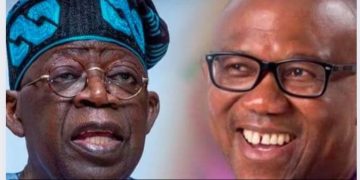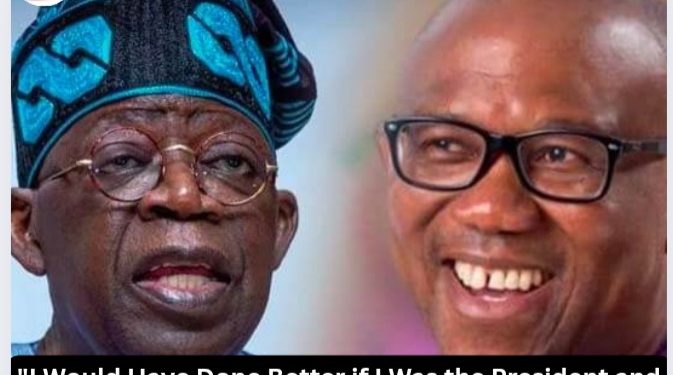Peter Obi, the Labour Party’s presidential candidate in the 2023 election, has strongly criticized President Bola Tinubu’s administration, accusing it of mismanaging Nigeria’s economy. He argued that the government’s policies have worsened the nation’s financial state instead of improving it.
During an interview on Arise News Prime Time on Tuesday, Obi, a former governor of Anambra State, expressed concern over the decision to float the naira without a corresponding increase in productivity. He described this approach as economically unsound and detrimental to Nigeria’s financial stability.
He also pointed out that the country’s debt has surged significantly under the current administration, with debt servicing costs now exceeding budgetary allocations for essential sectors such as healthcare and education.
According to Drivetvnews, Obi criticized the administration for failing to deliver meaningful economic progress. He asserted that, under his leadership, Nigeria would have experienced significant improvements within two years, emphasizing the importance of boosting productivity to create a more sustainable economy.
“If I were President, key areas of the economy would have seen substantial improvements within two years,” Obi stated. “Injecting funds into productive sectors is essential for building a strong and sustainable economy. Positive change is possible within a short period.”
He further criticized the rising cost of governance and stated that, if given the opportunity, he would have ensured that borrowed funds were invested in critical infrastructure rather than wasted.
Addressing concerns about Nigeria’s rising interest rates, Obi argued that poor debt management has placed businesses in a difficult position, making it harder for them to succeed. He pointed out that the country’s total debt has escalated from approximately ₦17 trillion to over ₦170 trillion within two years, with debt servicing now consuming a large portion of the national budget.
Additionally, he highlighted the deteriorating state of Nigeria’s healthcare and education systems, noting that around 70 percent of the country’s primary healthcare centers are non-functional. “If I were in office, my focus would be on fixing primary healthcare facilities and schools,” he added.
Obi also called for greater accountability from President Tinubu, emphasizing that effective leadership requires direct involvement rather than delegation.
“Having active aides is not enough. A leader must have the vision, energy, and competence to govern effectively. Leadership cannot be outsourced; it requires personal responsibility and accountability,” he said.
He concluded by expressing concerns over what he described as a lack of hands-on leadership within the current administration, urging government officials to take direct responsibility for addressing the nation’s challenges.















